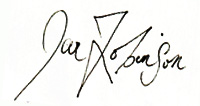What if a flavorful spice didn’t just taste great…but could help your body slow down – and even altogether prevent – liver cancer?Well…emerging research suggests that this cancer-fighting natural remedy exists.
The news comes from Professor Amr Amin. He leads research at the United Arab Emirates University and has also headed up cancer research for the universities of both Pennsylvania and Illinois.
His latest research gives hope for an effective solution that can prevent liver cancer. It shows that the compounds in one all-natural spice not only stop the spread of liver cancer…but also prevents it.
He’s published his findings in the peer-reviewed journal Hepatology. Other scientists say his research offers real hope for people with liver cancer.
Dr. Tapas Saha is a research biologist at Georgetown University. He’s been honored by England’s prestigious University of Cambridge for his work on cancer. He supports Prof. Amin’s new research.
“This is extensive work and the quality is very good,” he says. He’s convinced that the results aren’t just thorough…but they also offer patients a real way to prevent liver cancer.
Protection Through Prevention
Prof. Amin and his team gave lab rats a brightly-colored spice for almost six months. He split the rats into four groups. One group acted as a control and received water instead of the spice. The second group got 75 mg of spice; the third group got 150 mg; and the final group got 300 mg.
The rats were pretreated with the spice for two weeks.
Then they were injected with a chemical that induces liver cancer. After the rats developed lesions and tumors, they got the spice for 22 more weeks.
Prof. Amin says the spice significantly reduced the number of tumors and cancer cells in the three test groups of rats, compared to the control group. And an even more important finding? The rats that got the highest doses of the spice had much better results than those that got lower doses.
In fact, the rats that received the highest dosage of 300 mg showed no signs of cancer growth at all.
“Our findings suggest (this spice has) an anticancer effect,” says Prof. Amin.
So how does it work?
He says it “promotes cell death, inhibits cancerous cells and blocks inflammation.”
In other words…the spice blocks cancer cells and stops them from spreading.
Another study backs up Prof. Amin’s results.
Researchers at the King Khalid University in Saudi Arabia have also studied whether the spice can combat liver cancer. Those scientists got the same positive results.
Spicing Up Your Health
The spice that’s getting so much scientific attention is saffron. It’s a natural flower product that needs to be hand-picked and dried. In fact, three acres of flowers only produces one pound of saffron.
It’s best known for cooking because it adds a yellowish hue to foods. Now, it’s becoming popular for its antioxidant and anti-inflammatory benefits.
“In the fight against cancer there has been much interest in chemo-preventive properties of natural herbs and plants,” says Prof. Amin.
And he says saffron may be the one of the best.
Harvesting saffron is pretty expensive. You need 75,000 blossoms to make one pound. That means the price can range from $50-$300 an ounce. But the good news is, it packs a powerful punch so you only need a little.
You should also know what kind of saffron you’re taking. Pure saffron contains only the dried stigmas of the crocus flower. The best version of the spice is red and has a distinct smell. Yellow saffron also works, but it’s not as potent.
You can also find saffron in supplement form, which is much more affordable. It’s available in powder, capsule and extract form online and in health food stores. A one-ounce bottle of saffron extract, for instance, costs about $10.
Prof. Amin’s study used up to 300 mg with good results. Which means you can get about 100 doses for 10 dollars.
Keep this in mind: Authentic saffron is expensive, but if you can afford it, it’s worth the price.
One specific brand is 100 percent saffron, sourced from organic flowers. It’s called Exir. If you’re interested, you can find it here.
Wishing you good natural health,

Ian Robinson,
Editorial Director, NHD “Health Watch”
